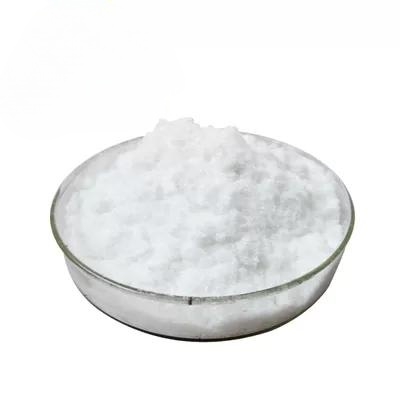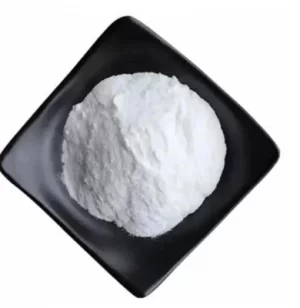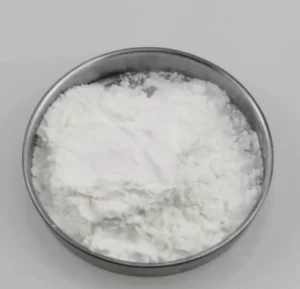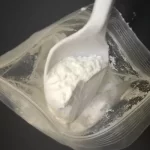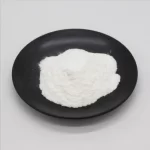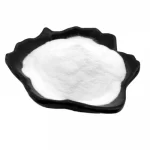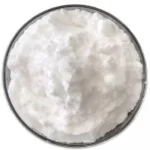Description
97540-22-2 Ademetionine Disulfate Tosylate Off White Powder
Description
| Sample: | Available | Package: | 1 Kg Per Foil Bag,25 Kg Per Drum |
|---|---|---|---|
| Color: | White | Shelf Life: | 2 Years |
| Appearance: | Powder | Storage: | Keep Out Of The Sun, Cool And Dry Place |
| Origin: | China | Brand: | Changland |
| High Light: |
97540-22-2 Ademetionine Disulfate Tosylate, GMP Ademetionine Disulfate Tosylate, Ademetionine Nutritional Supplements |
||
Ademetionine Disulfate Tosylate 97540-22-2 Off-White Powder Ademetionine
| Product name | Ademetionine disulfate tosylate |
| CAS | 97540-22-2 |
| English synonyms | SAM-T(S-Adenosyl-5-L-Methionine Tosylate) |
| form | powder |
| Shelf life | 2 Years |
| Storage | Inert atmosphere,Store in freezer, under -20°C |
| Purity | 99% |
| colour | white |
Product description
Ademethionine Disulfate Tosylate (SAMe for short) is a common cosubstrate involved in methyl group transfers.
SAMe was first discovered in Italy by G. L. Cantoni in 1952, can preventing liver cancer, promoting cartilaginous tissue forming and concrescence, may help fight depression, alzheimer’s disease, liver disease, and the pain of osteoarthritis.
Ademetionine disulfate tosylate is now universerally acknowleged as an important pharmaceuticals to treat liver diseases. Nowaday it is commonly used in pharmaceuticals, health care food industry both at domestic and international market
Applications
1. S-Adenosyl methionine (SAM, SAMe, SAM-e) is a coenzyme involved in methyl group transfers. It is made from
adenosine triphosphate (ATP) and methionine by methionine adenosyltransferase (EC 2.5.1.6). Transmethylation,
transsulfuration, and aminopropylation are the metabolic pathways that use SAM. Although these anabolic reactions
occur throughout the body, most SAM is produced and consumed in the liver.
2 .The methyl group (CH3) attached to the methionine sulfur atom in SAM is chemically reactive. This allows donation
of this group to an acceptor substrate in transmethylation reactions. More than 40 metabolic reactions involve the
transfer of a methyl group from SAM to various substrates such as nucleic acids, proteins, and lipids.
3 .In bacteria, SAM is bound by the SAM riboswitch, which regulates genes involved in methionine or cysteine biosynthesis.
4 .Another major role of SAM is in polyamine biosynthesis. Here, SAM is decarboxylated by adenosylmethionine
decarboxylase (EC 4.1.1.50) to form S-adenosyl-5′-3-methylpropylamine. This compound then donates its
n-propylamine group in the biosynthesis of polyamines such as spermidine and spermine from putrescine.
5 .SAM is required for cellular growth and repair. It is also involved in the biosynthesis of several hormones and
neurotransmitters that affect mood, such as dopamine and serotonin. Methyltransferases are also responsible for
the addition of methyl groups to the 2′ hydroxyls of the first and second nucleotides next to the 5′ cap in messenger RNA.
6 .In the United States, SAM is sold as a nutritional supplement under the marketing name SAM-e (also spelled
SAME or SAMe). Some research has indicated that taking SAM on a regular basis help fight depression, liver
disease, and the pain of osteoarthritis. Multiple clinical trials indicate benefits for depression, some liver conditions
and osteoarthritis. All other indications are not yet proven.

